The Carrot's Best Friends: Companion Plants That Will Boost Your Yield
The Carrot's Best Friends: Companion Plants That Will Boost Your Yield
Carrots are a delicious and nutritious vegetable that is a staple in many gardens. But did you know that there are certain plants that can help to boost your carrot yield? These companion plants can help to improve the flavor, growth, and health of your carrots, and they can also help to deter pests.
In this blog post, we will discuss some of the best companion plants for carrots. We will also provide some tips on how to plant and care for these plants together. So, if you are looking for ways to improve your carrot crop, read on!
What are Companion Plants?
Companion planting is a gardening technique that involves planting certain plants together to benefit each other. These plants can help to improve the growth, flavor, and pest resistance of each other.
There are many different companion plants that can be used with carrots. Some of the most popular include:
- Chives: Chives are a great companion plant for carrots because they help to repel carrot flies. They also have a strong scent that can help to deter other pests, such as aphids and slugs.

- Nasturtiums: Nasturtiums are another great companion plant for carrots. They help to attract beneficial insects, such as ladybugs and lacewings, which can help to control pests. They also have a strong scent that can help to deter other pests.
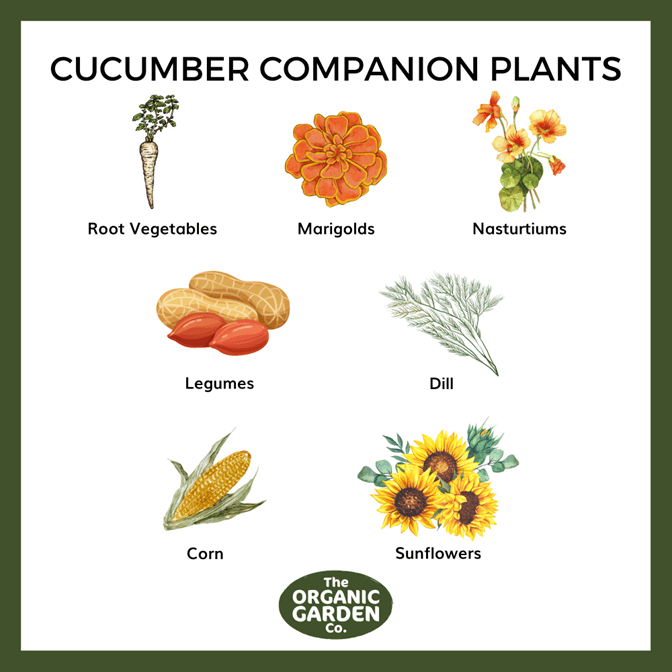
- Beans: Beans are a nitrogen-fixing plant, which means that they can help to improve the soil quality for carrots. They also help to shade the soil, which can help to keep carrots cool and prevent them from bolting.
- Lettuce: Lettuce is a good companion plant for carrots because it does not compete for the same resources. Lettuce has shallow roots, while carrots have deep roots. This means that they will not compete for water or nutrients.
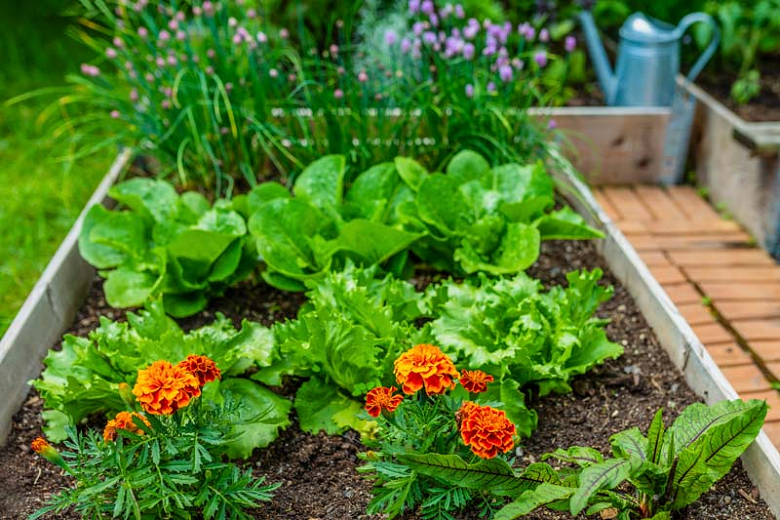
- Peas: Peas are another nitrogen-fixing plant that can help to improve the soil quality for carrots. They also help to shade the soil, which can help to keep carrots cool and prevent them from bolting.
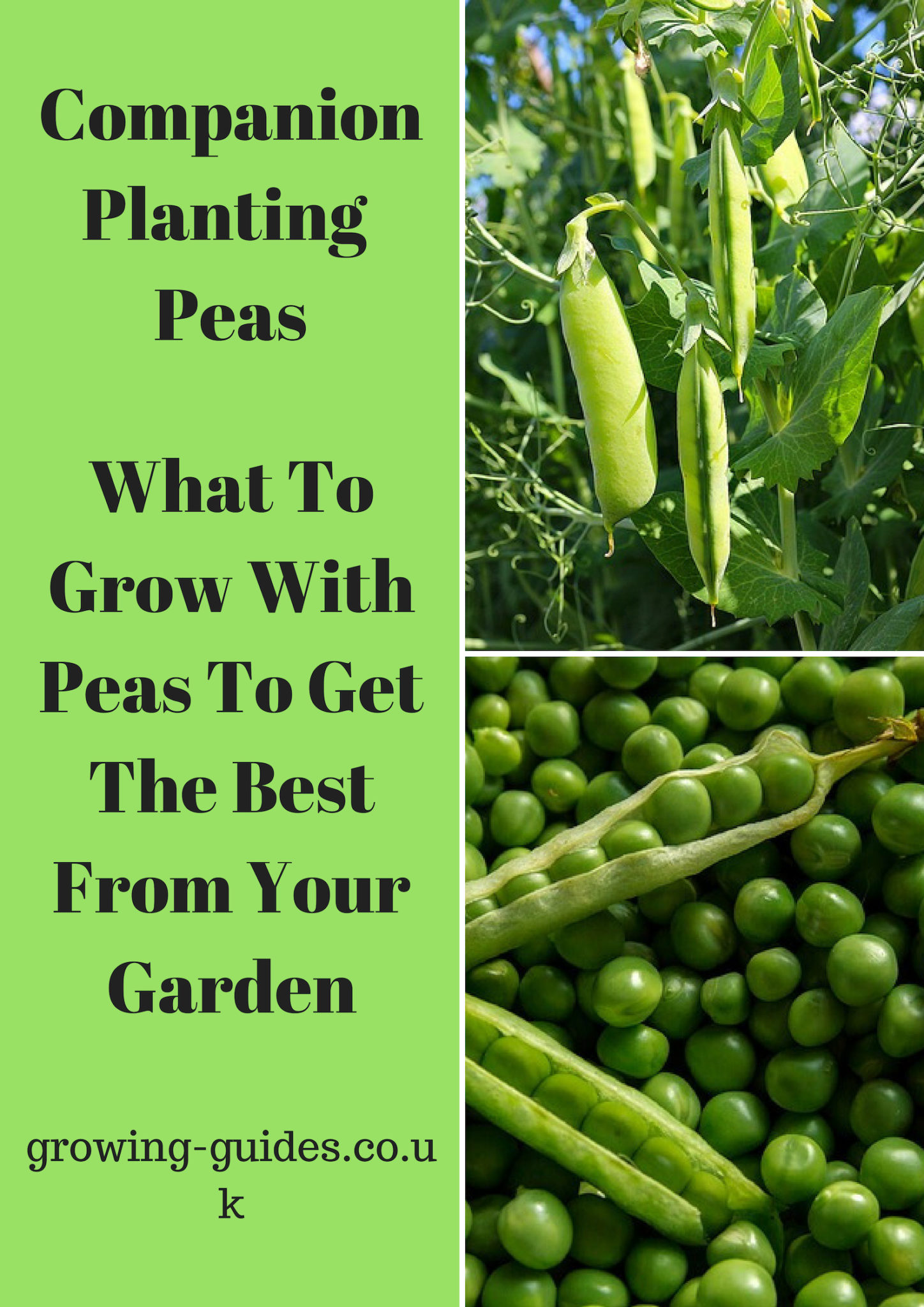
How to Plant Companion Plants with Carrots
When planting companion plants with carrots, it is important to consider the size and growth habit of each plant. For example, chives and nasturtiums are both relatively small plants, so they can be planted closer to carrots. Beans and peas are taller plants, so they should be planted further away from carrots.
It is also important to plant companion plants at the same time as carrots. This will help to ensure that they establish themselves at the same time and benefit each other from the start.
Tips for Caring for Companion Plants with Carrots
Once you have planted your companion plants with carrots, it is important to care for them properly. This includes watering them regularly, weeding the area, and fertilizing them as needed.
It is also important to monitor your plants for pests and diseases. If you see any problems, take steps to correct them immediately.
Conclusion
Companion planting is a great way to improve the growth, flavor, and pest resistance of your carrot crop. By planting the right companion plants together, you can boost your yield and enjoy delicious, healthy carrots all season long.
Carrots are a delicious and nutritious vegetable that can be grown in many different climates. But did you know that there are certain companion plants that can help your carrots grow better?
Companion planting is a gardening technique that involves planting certain plants together to benefit each other. For example, some companion plants for carrots can help to repel pests, improve soil quality, or attract pollinators.
Here are some of the best companion plants for carrots:
- Onions: Onions have a strong scent that can help to repel carrot flies, which are a common pest.
- Lettuce: Lettuce helps to keep the soil cool and moist, which is ideal for carrots.
- Marigolds: Marigolds have a strong scent that can help to repel a variety of pests, including nematodes and carrot rust flies.
- Peas: Peas are nitrogen-fixing plants, which means they can help to improve the soil quality for carrots.
- Nasturtiums: Nasturtiums attract pollinators, which can help to improve the pollination of carrots.
If you're looking to grow the best carrots possible, I recommend considering companion planting. There are many different companion plants that can benefit carrots, so you're sure to find some that work well for your garden.
For more information about companion planting for carrots, please visit Gardenia Inspiration.
FAQ of companion plants to carrots
Q: What are some good companion plants for carrots?
A: Some of the best companion plants for carrots include:
- Onions, scallions, and leeks: These plants help to repel carrot flies, which are a common pest of carrots.
- Marigolds: Marigolds have a strong scent that helps to repel pests, such as nematodes and carrot rust flies.
- Nasturtiums: Nasturtiums also have a strong scent that helps to repel pests, and they also attract beneficial insects, such as ladybugs.
- Lettuce: Lettuce helps to suppress weeds and attract beneficial insects.
- Peas and beans: These legumes help to improve the nitrogen content of the soil, which can benefit carrots.
Q: What plants should I avoid planting near carrots?
A: Some plants that you should avoid planting near carrots include:
- Dill: Dill attracts carrot flies, which can damage carrot plants.
- Celery: Celery competes with carrots for water and nutrients.
- Potatoes: Potatoes and carrots compete for the same nutrients, and planting them together can lead to a lower yield.
- Parsnips: Parsnips have a similar root structure to carrots, and planting them together can lead to root competition.
Q: How far apart should I plant carrots and their companion plants?
A: The spacing requirements for carrots and their companion plants will vary depending on the specific plants involved. However, as a general rule, you should plant carrots at least 2 inches apart, and their companion plants at least 6 inches apart.
Q: What are the benefits of companion planting carrots?
A: There are several benefits to companion planting carrots. Companion plants can help to:
- Repel pests: Some companion plants, such as marigolds and nasturtiums, have a strong scent that can help to repel pests that damage carrots.
- Improve soil quality: Some companion plants, such as legumes, can help to improve the nitrogen content of the soil, which can benefit carrots.
- Attract beneficial insects: Some companion plants, such as lettuce and marigolds, attract beneficial insects, such as ladybugs, which can help to control pests that damage carrots.
Image of companion plants to carrots
5 different images of companion plants to carrots from Pinterest:
- Carrots and beans: Beans fix nitrogen in the soil, which benefits carrots. Beans also help to deter pests from carrots.

- Carrots and lettuce: Lettuce helps to suppress weeds, which can compete with carrots for water and nutrients. Lettuce also shades the soil, which can help to keep carrots cool and prevent them from bolting.
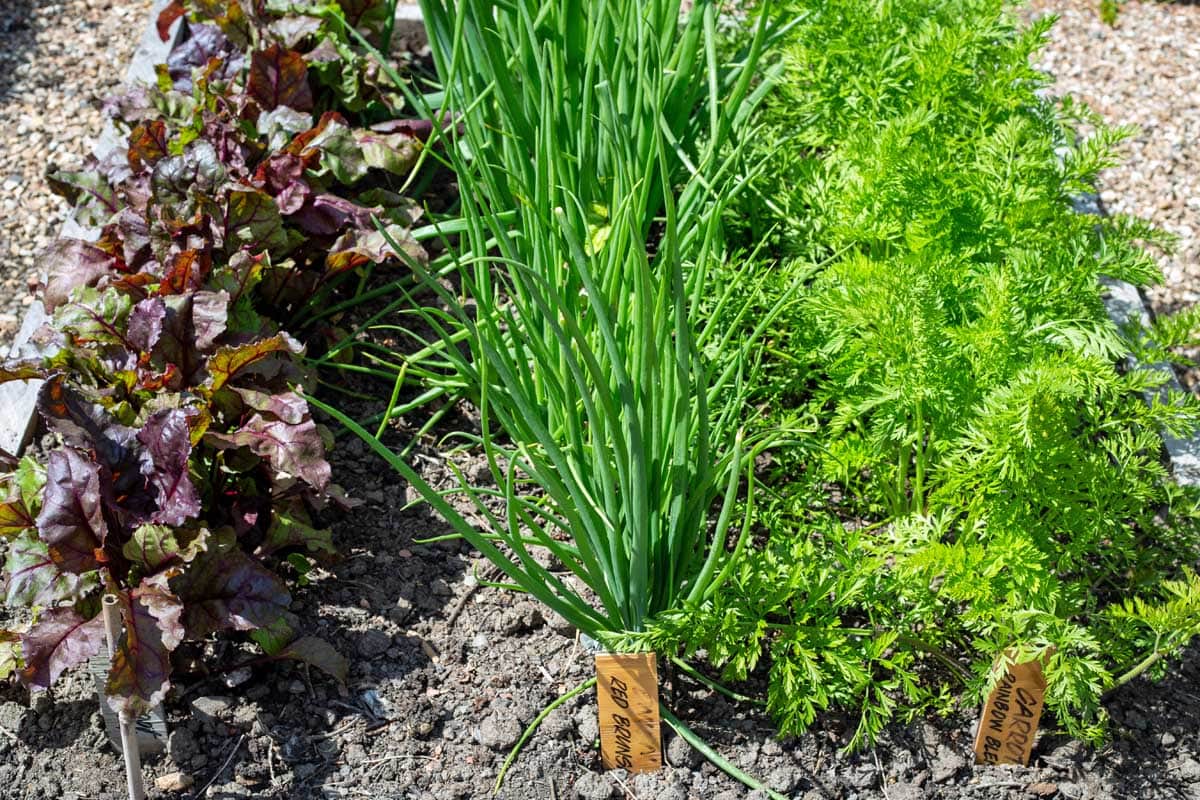
- Carrots and onions: Onions repel carrot fly, a common pest of carrots. Onions also help to improve the flavor of carrots.

- Carrots and peas: Peas help to improve the drainage of the soil, which can benefit carrots. Peas also help to deter pests from carrots.
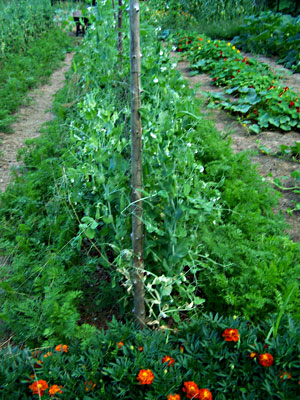
- Carrots and tomatoes: Tomatoes help to deter carrot fly, a common pest of carrots. Tomatoes also help to improve the flavor of carrots.
Post a Comment for "The Carrot's Best Friends: Companion Plants That Will Boost Your Yield"